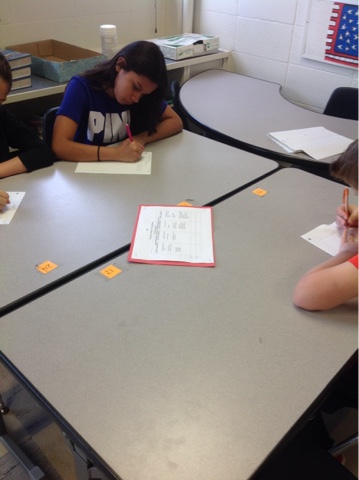As we design instruction, the verbs are essential! They tell us what students will do with their learning, how they'll demonstrate mastery. But, the nouns of education are also important - don't ignore the great things at TMS!
 |
| Post-Assessment: Students set goals in PE early in the based on their fitness scores; now it's time to see if they met their goal - for most, it's not a surprise as they've monitored their progress throughout the year. |
 |
| Collaboration: Students give their muscle to help a friend build a birdhouse in tech ed. |
 |
| Conceptualization: Students compare the modern day map of Asia by restructuring it into the ancient world view of the region. |
 |
| Presentation: Students conducted an experiment of their own and presented their findings the class. |
 |
| Research: Students had to build background knowledge before designing the experiment. |
 |
| Procedure: Students detailed the steps of their experiment. |
 |
| Data: Students need to review data in order to draw conclusions. |
So whether your instructional nouns are post-assessment, collaboration, conceptualization, presentation, research, procedure, data, or something else, keep it up because there's great learning at TMS!




































